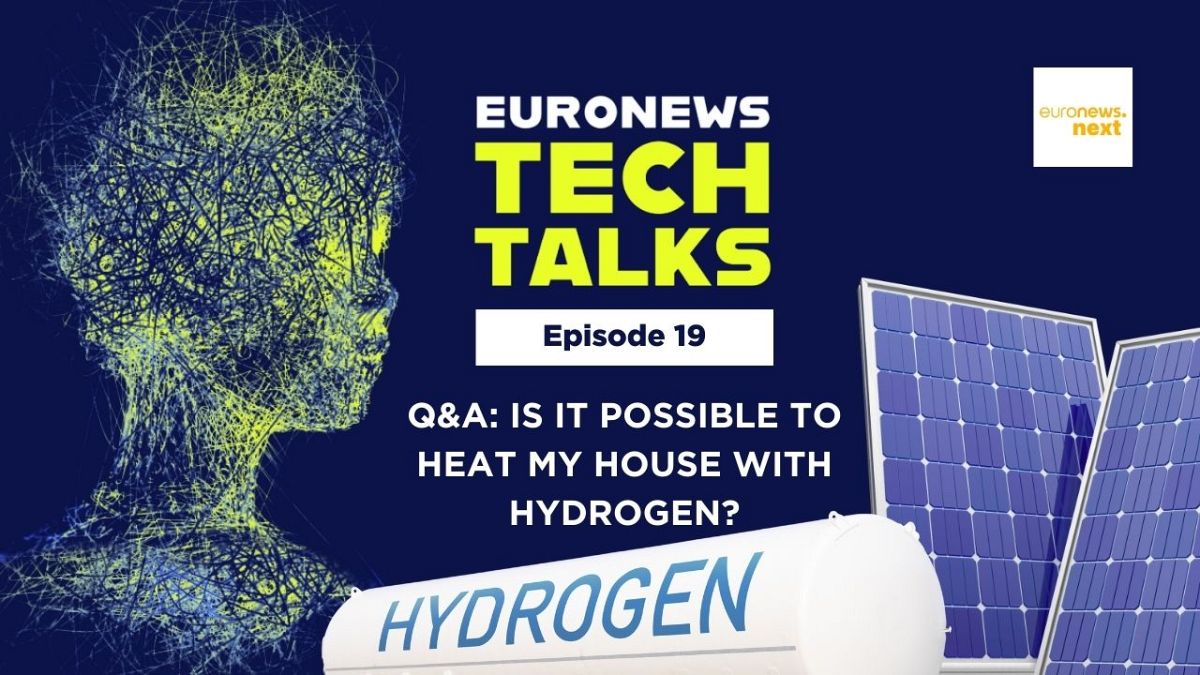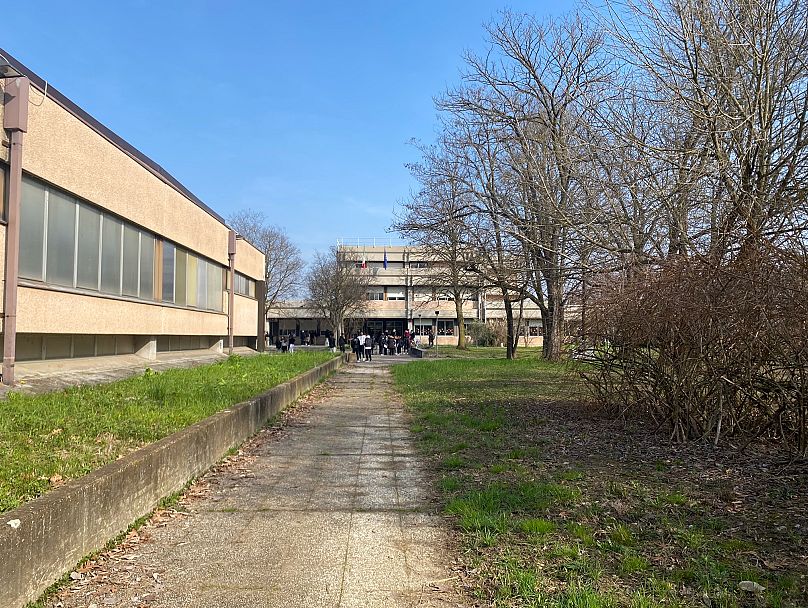Will hydrogen become the new petrol? Does it pollute? How much does it cost? To answer these questions, we talk to Rosalinde van der Vlies, the Director of Clean Planet in DG Research and Innovation at the European Commission.
In this third and final episode about the European hydrogen rush, Euronews Tech Talks ventured into an Italian high school pioneering in the field of green hydrogen for heating.
There, we learned more about the hydrogen boiler and collected questions for our Q&A episode with Rosalinde van der Vlies, Director of Clean Planet in DG Research and Innovation at the European Commission.
Hydrogen: the best-kept secret of Meucci
Hidden in the schoolyard of Meucci's Technical High School in Carpi, northern Italy, lies the first hydrogen-powered boiler ever built at a European Union (EU) educational site.
Inaugurated on the 20th of January 2023, the hydrogen boiler was conceived by the company Coopservice, winner of a call for energy initiatives opened by the Province of Modena in 2020. Aimed at building IdrogeMO, the Italian hydrogen valley, the Province has been heavily investing in the creation of hydrogen initiatives, with Meucci's boiler being one of its pillars.
Appearing as a grey structure protected by a fence, the boiler produces renewable hydrogen on-site: it harnesses solar energy from the photovoltaic panels installed on the roof of the school gym and turns it into clean hydrogen using the electrolysis chemical process.
Overall, the forward-looking project demanded a €350,000 investment and, together with other 20 energy projects in Modena, it is expected to reduce CO2 emissions by 717 tonnes per year.
Due to security measures and the pioneering nature of this initiative, the facility currently heats the school gym with an energy mix of 30% hydrogen and 70% methane. However, the boiler has been designed to eventually heat the entire school using only renewable hydrogen.
Warmly welcomed by the local administration and the teachers, the hydrogen boiler initially raised some questions among the most curious students: “At the beginning, I wasn't exactly sure what it was about,” Clelia, a 15-year-old girl, told Euronews.
However, once the project was launched, the students got involved by designing an escape game to explain the hydrogen boiler to Meucci's visitors and future pupils.
Thanks to this familiarisation with the heating infrastructure, students at Meucci learned about hydrogen and eagerly shared their questions with Euronews.v
What's the European Commission's strategy on hydrogen?
“We call hydrogen the rock star of the energy transition,” Rosalinde van der Vlies told Euronews.
“Hydrogen can store different renewable energies and replace fossil fuels in many hard-to-abate sectors, like the chemicals industry or the steel industry. And it can also be used in different transport modes,” she underlined.
Thanks to these positive characteristics, hydrogen is in the spotlight of EU energy policy.
“The European Commission has a total budget of €2 billion to invest in hydrogen projects carried out by industries,” van der Vlies explained.
But how is the EU investing this money?
We invest in the production to make it cheaper, we look into how we can transport and store hydrogen in the most efficient way, and we invest in its end-use applications,” the European diplomat outlined.
Green hydrogen currently costs around €6 to €9 per kilogram, but with its plan, the European Commission aims to reduce the price of this net-zero energy to €1 or €2.
Besides cutting down the price of clean hydrogen, the EU is also investing in developing technical skills among its workers:
“And this is why we have set up a hydrogen academy that will really be supporting all the EU member states with developing the necessary skills to deal with this energy vector,” van der Vlies added.










